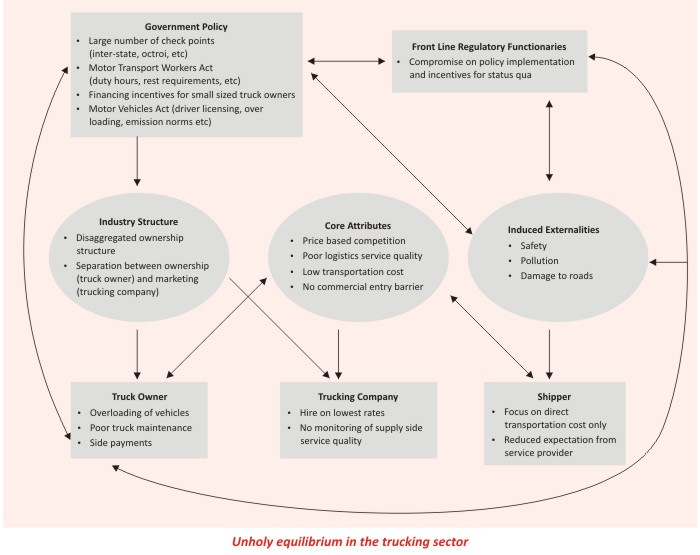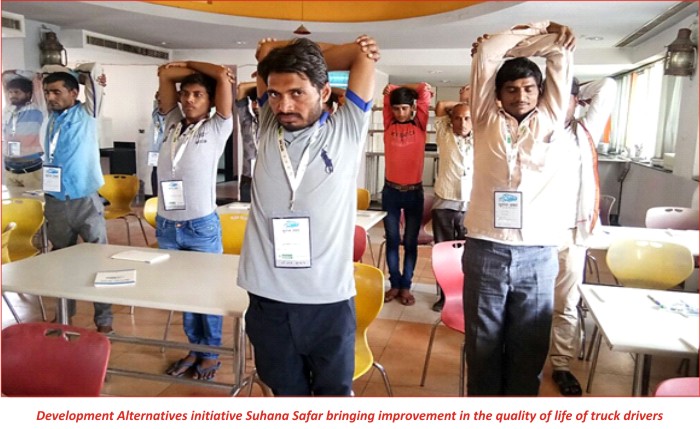|
Indian Trucking Industry - Skilling the Supply Chain
The Indian trucking industry is the core of logistics movement and country’s growth. According to vice-president of the All India Motor Transport Congress (AIMTC), more than 12 crore people in the country are directly and indirectly dependent on the freight transport industry for their living. However, this segment is highly unorganised and faces several challenges. The structure of the trucking industry is commercially very dynamic. Customers move their goods almost entirely through third party players, rather than through their own fleet. The core actors directly serving the customers are the trucking company, brokers or agents and pure truck owners. This core set of actors are supported by truck manufacturers, truck body builders, drivers and fuel suppliers. The core set of actors have an ecosystem constituting support services, government and regulatory bodies. Considering that trucking operations and its efficiency is of primary importance in the growth and development of any economy and society, it is estimated that by 2022, there will be only 480 drivers per 1000 trucks, which will have serious implications on the Indian Economy. In our society, drivers lack respect. Also dis-attachment from home for several days is the major cause of non interest for today’s generation in entering long distance truck driving. They are most affected due to long working hours, poor sanitation, poor food standards and poor pay packets. A truck driver's life in India regularly figures in the list of worst jobs in the country. The life expectancy of a truck driver is at least 10 years less than the national average.
A research shows that vocational training, social vaccine and education are required to enhance the skill sets of long-distance truck drivers. The training will aid in enhancement of social skills and technical skills of truck drivers which will motivate them to stay in the trucking industry. The Skilling Supply Chains initiative called Suhana Safar, is designed and developed by Development Alternatives in an effort to work towards eliminating most of the significant challenges faced by the truck drivers and their helpers’ communities and other supply chain workers. Suhana Safar programme focuses on creating awareness and building capacities of truck drivers and their helpers on road safety, water, sanitation, health and hygiene (WASH), alcoholism, HIV and financial literacy etc. It focuses to bring about changes in their everyday lives, and subsequently making them more productive and efficient in their work by improving their quality of life. The programme has reached out to more than 10,000 truck drivers and their helpers till now.
Various steps need to be taken at policy level for improving the lives of truck drivers and helpers and regularising the overall logistic sector. A good example is various private players entering this market like “Rivigo”. This company has resorted to relay model, as they have setup pit spots, a place along the highways where one driver hands over the truck to another for further journey and a truck driver will be on the road for around 10 hours before going back home, as they live close to the pit spots. It uses technology to roster duty at pit stops, schedule pick-ups and deliveries. It helps in creating positive work environment for their employees i.e. truck drivers. Similar actions need to be taken by the government authorities to regularise the overall logistics sector, which can be initiated through following steps:
Tanvi Arora
References: |

